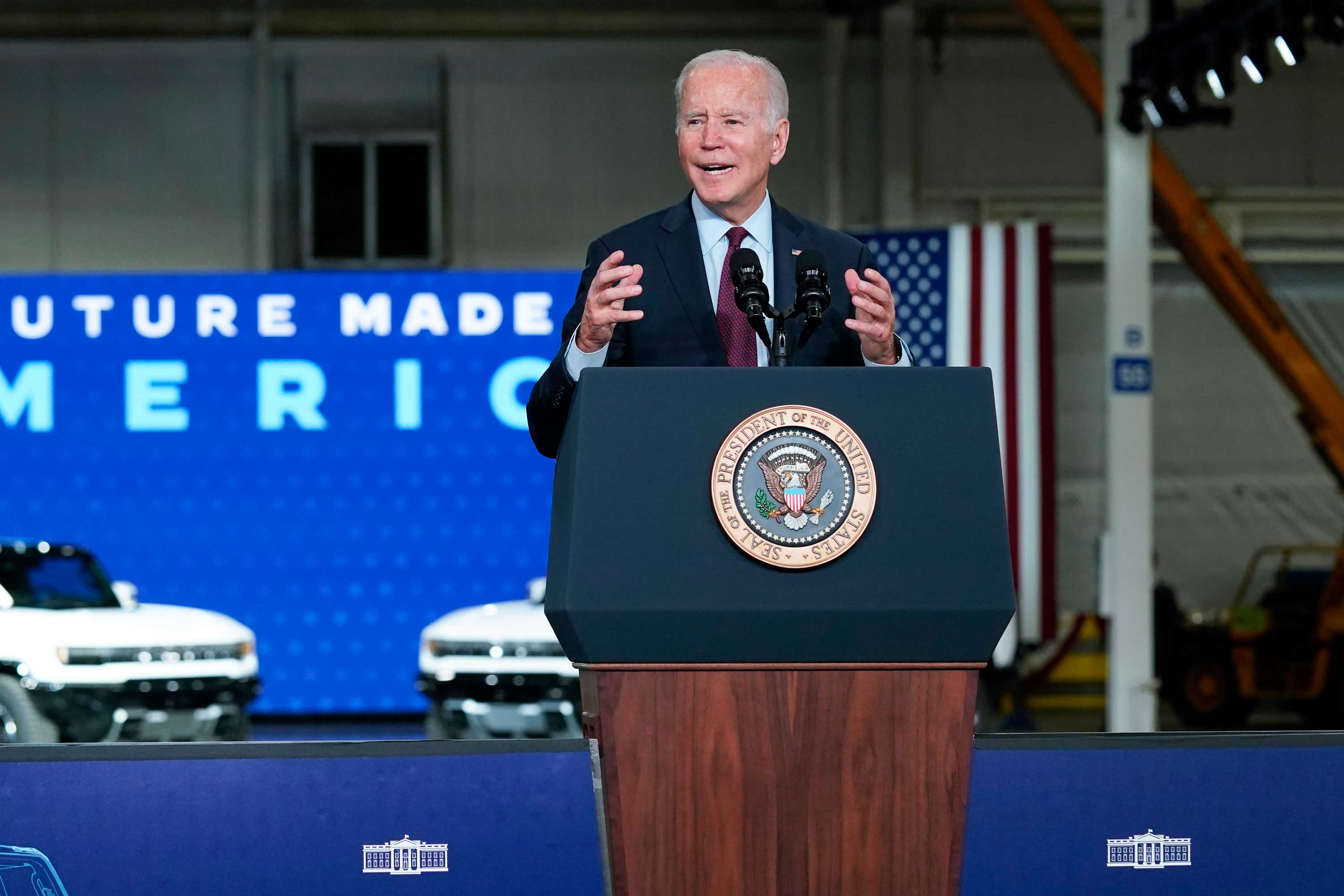
Automotive executives think more than half of their sales will be electric vehicles by 2030, in line with President Joe Biden's EV sales goal, according to a new survey released Tuesday by accounting and consulting firm KPMG.
While estimates varied widely from more than 20% to about 90%, the survey on average that executives expect 52% of new vehicle sales to be all-electric by 2030. The same amount is expected for Japan and China, according to the survey which polls more than 1,100 global automotive executives.
The results may be surprising to many investors and industry onlookers. The adoption rate of electric vehicles in the U.S. remains far behind other countries such as China. Even when Biden announced the EV sales target in August, which also counts plug-in electric hybrid vehicles toward the goal, major automakers Ford Motor and General Motors only committed to a goal of between 40% and 50% by 2030.
Automotive forecasters and analysts also have said while they agree electric vehicle adoption will be rapid, the industry likely won't hit Biden's goal.
KPMG said there are important economic assumptions behind the findings in the survey. Seventy-three percent of respondents expect that EVs will reach cost parity with internal combustion engines by 2030. And while 77% believe EVs can be widely adopted without government subsidies, 91% said they still support such programs.
"There seems to be more general optimism toward EVs than even 12 months ago. This is probably due to the billions of dollars of freshly committed capital and the bevy of new vehicles coming into the market. That said, our survey shows a very wide range of opinions on 2030 market share," said Gary Silberg, KPMG global head of automotive.
Access to charging stations, specifically rapid charging stations for longer travels, remains a hurdle to EV adoption for many consumers. KPMG found 77% of executives expect consumers to require quick charge times of under 30 minutes when traveling.
In the U.S., less than 20% of existing public EV chargers are fast chargers, and many of them can't charge a vehicle to 80% in 30 minutes or less, according to KPMG.
Start-ups
More than 60% of survey participants believe an influx of new electric vehicle start-ups entering the automotive industry will have a "moderate impact" on the global market. That means a few will find success. Many will eventually get bought by larger companies or remain a niche player, according to the survey.
Another 31% of respondents said they believe start-ups will have a "major impact" on the industry, while 8% believe most, if not all, will fail.
While the survey didn't name companies, there's been a handful of electric vehicle start-ups recently entering the market. The most prominent have been Rivian and Lucid, which are both producing vehicles. Others such as Canoo, Lordstown Motors and Fisker haven't produced much, if any, revenue yet.
Bullish outlooks
KPMG's 22nd annual Global Automotive Executive Survey found that 53% of executives who participated are confident that the auto industry will see more profitable growth in the next five years, while 38% were concerned about the outlook for profits.
The most bullish executives were in the U.S. and China. The least optimist executives were in France and India, with Germany, Japan and Brazil in the middle.
KPMG conducted the survey of 1,118 executives in August. Almost 372 respondents were CEOs and 325 were other C-level executives. Nearly a quarter of respondents were from car manufacturers, while 13% were from top-tier suppliers, according to KPMG.
"car" - Google News
December 01, 2021 at 02:56AM
https://ift.tt/3xLHQrh
Auto executives say more than half of U.S. car sales will be EVs by 2030, KPMG survey shows - CNBC
"car" - Google News
https://ift.tt/2SUDZWE
https://ift.tt/3aT1Mvb
Bagikan Berita Ini














0 Response to "Auto executives say more than half of U.S. car sales will be EVs by 2030, KPMG survey shows - CNBC"
Post a Comment